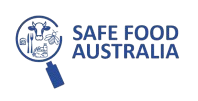Standard 3.2.2A applies to most food sectors from 8th December 2023. It applies to Australian businesses in food service, catering and retail sectors that handle unpackaged, potentially hazardous food that is ready to eat including caterers, restaurants, cafes, takeaway shops, pubs, supermarkets and delis, food vans and other facilities serving food.
Note: The following exclusions apply to some businesses including:
- food handling for or at an event raising funds solely for charity
- businesses that only manufacture or wholesale food
- other food businesses that are not serving or retailing unpackaged food that is potentially hazardous and ready to eat
- Any food business that is licensed with the NSW Food Authority
School canteens, children’s services that supply food, supermarkets, greengrocers, delis, coffee vendors (that sell potentially hazardous, unpackaged, ready-to-eat food), correctional centres and boarding schools have until 8th December 2024 to comply.
This standard applies to a food business in Australia that is a category one business or a category two business as defined in the Standard.
General examples of category one businesses (basically, these businesses handle food that is unpackaged, ready-to-eat and potentially hazardous food, in the final stages before consumers will eat it. These handling activities have inherently high food safety risks and have been linked to foodborne illness outbreaks in Australia and overseas).
- restaurants, cafes, pubs, hotels with table service, takeaway and smorgasbords
- supermarkets and delis
- takeaway shops, mobile food vendors and juice bars
- hospitals, aged care facilities and childcare centres
Category one businesses must comply with sections 10, 11 & 12 of the Standard.
- all food handlers undertaking prescribed activities must have completed a food safest training course or have appropriate skills and knowledge
- a food safety supervisor must be appointed and be reasonable available
- records or other evidence to substantiate that specific activities are being properly managed
General examples of category two businesses (basically, these businesses offer for retail sale a food that is: potentially hazardous food and ready-to-eat food where that food was received unpackaged by the food business or was unpackaged by the food business after receipt and was not made or processed (other than slicing, weighing, repacking, reheating or hot-holding the food) by the food business.
- delicatessens
- market stalls
- supermarkets with delis
- service stations
- convenience stores
- other food retailers
Category two businesses must comply with sections 10 & 11 of the Standard.
- all food handlers undertaking prescribed activities must have completed a food safest training course or have appropriate skills and knowledge
- a food safety supervisor must be appointed and be reasonable available
Click on the following links for more information.
For FREE online food safety training see the following link.
https://www.foodauthority.nsw.gov.au/training/food-handler-basics-training

